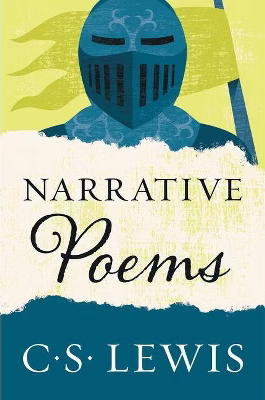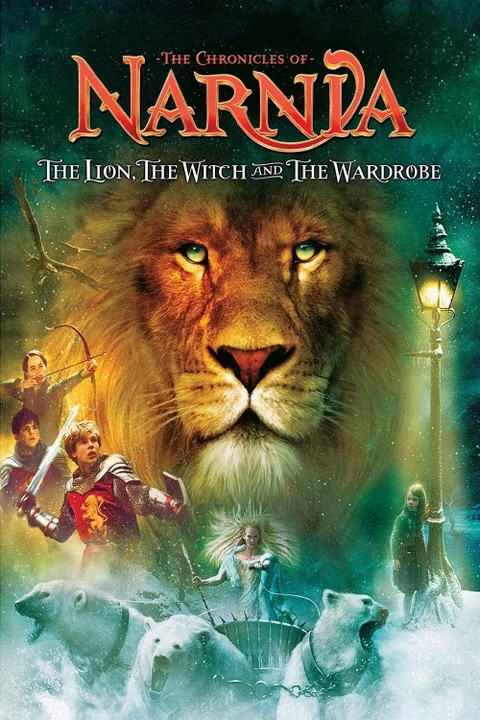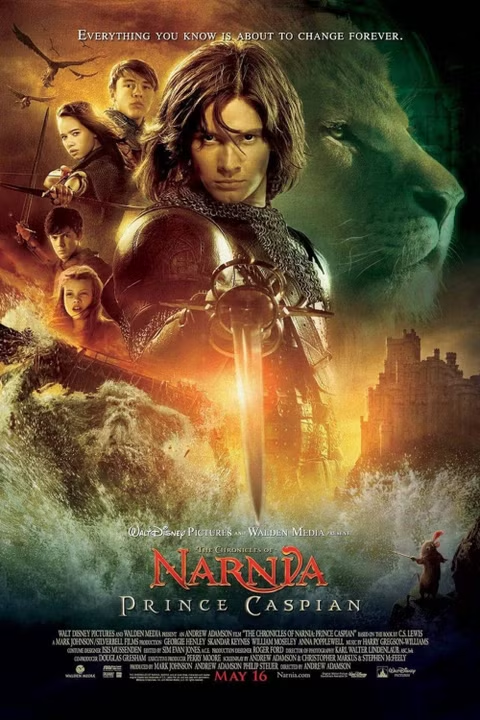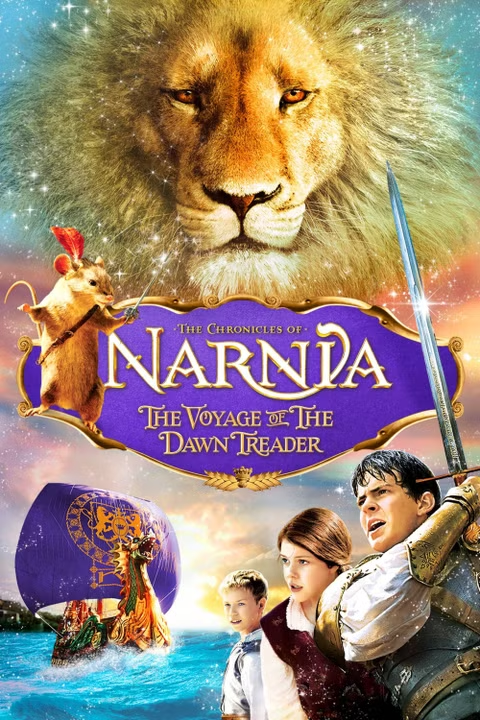C S Lewis Books
Cosmic Trilogy Series

Out of the Silent Planet - 1938
C.S. Lewis's Out of the Silent Planet follows Dr. Elwin Ransom, a linguist abducted to Mars (Malacandra) by two men seeking power. Discovering a peaceful, intelligent alien society, Ransom learns of Earth’s fallen nature. He escapes his captors and returns home, inspired by the spiritual harmony of Malacandra.

Perelandra - 1944
C.S. Lewis's Perelandra, the second book in his Space Trilogy, explores a spiritual battle on the unfallen planet Perelandra (Venus). Dr. Ransom confronts the demonic Weston, who tempts Perelandra’s Eve-like figure to disobey God. The story delves into themes of temptation, free will, and divine intervention in a richly imaginative setting.

That Hideous Strength - 1945
That Hideous Strength explores the clash between spiritual truth and modern scientific materialism. The story follows Mark and Jane Studdock as they encounter the sinister organization N.I.C.E., which seeks to control society through unethical means. Themes of morality, power, and redemption intertwine in this thought-provoking, dystopian narrative.
The Chronicles Of Narnia Series

The Lion, the Witch and the Wardrobe - 1950
In The Lion, the Witch and the Wardrobe, four siblings enter Narnia through a wardrobe. They discover a magical world under the White Witch’s icy rule. Guided by Aslan, a noble lion, they fulfill a prophecy, overthrow the Witch, and restore peace, becoming kings and queens of Narnia.

Prince Caspian - 1951
In Prince Caspian, the Pevensie siblings return to Narnia, discovering centuries have passed since their reign. Narnia is oppressed under King Miraz, who usurped Prince Caspian's throne. With the help of Aslan, talking animals, and loyal Narnians, they restore Caspian as rightful king, bringing justice and reviving Narnia's ancient magic and harmony.

The Voyage of the Dawn Treader - 1952
The Voyage of the Dawn Treader follows Lucy, Edmund, and their cousin Eustace as they join King Caspian on a sea voyage in Narnia. Aboard the Dawn Treader, they face trials, magic, and personal growth while seeking lost lords. Eustace's transformation into a dragon highlights redemption and courage.

The Silver Chair - 1953
In The Silver Chair by C.S. Lewis, Eustace Scrubb and Jill Pole are sent to Narnia by Aslan to rescue Prince Rilian, who is under an enchantment. Guided by Aslan’s signs, they face trials, uncover the Green Lady's plot, and free Rilian, restoring him to Narnia's throne.

The Horse and His Boy - 1954
The Horse and His Boy follows Shasta, a young boy raised by a cruel fisherman, and Bree, a talking horse from Narnia. Together, they escape to freedom, meeting Aravis and Hwin along the way. Facing challenges, they uncover a plot against Narnia, ultimately aiding its salvation and discovering Shasta's true identity as royalty.

The Magician’s Nephew - 1955
The Magician’s Nephew tells the origin of Narnia. Young Digory and Polly discover magical rings enabling travel between worlds. They awaken the evil Queen Jadis, accidentally bringing her to London. Eventually, they witness Aslan creating Narnia and planting a protective tree. The story explains Narnia's beginnings and key elements.

The Last Battle - 1956
In The Last Battle, the final book of C.S. Lewis's The Chronicles of Narnia, King Tirian faces treachery as an ape named Shift and a donkey named Puzzle deceive Narnians using a false Aslan. As Narnia falls into chaos, the real Aslan appears, bringing the world to its end and leading true believers to paradise.
The World Of Narnia Series

A Book of Narnians - 1950
A Book of Narnians serves as a companion guide to C.S. Lewis's Chronicles of Narnia series. It explores the rich world of Narnia, profiling its inhabitants—heroes, villains, mythical creatures, and talking animals. The book highlights their roles, characteristics, and relationships, offering readers deeper insights into Lewis’s magical universe.

Lucy Steps Through the Wardrobe - 1997
In Lucy Steps Through the Wardrobe, an adaptation of C.S. Lewis’s The Lion, the Witch, and the Wardrobe, Lucy discovers a magical wardrobe leading to Narnia. She meets Mr. Tumnus, a faun, who reveals the land is under the White Witch’s spell. This encounter begins the Pevensie siblings' Narnian adventures.

Edmund and the White Witch - 1997
The book Edmund and the White Witch retells part of The Lion, the Witch and the Wardrobe by C.S. Lewis. It focuses on Edmund's encounter with the White Witch in Narnia, where she deceives him with enchanted treats and promises of power, leading to his betrayal of his siblings.

Aslan - 1998
Peter, Susan, Edmund, and Lucy step through the wardrobe to find themselves in the enchanted land of Narnia where they witness the downfall of the White Witch's evil spell and meet the great lion, Aslan.

Aslan's Triumph - 1998
Aslan's Triumph follows the majestic lion Aslan leading the Narnians against a formidable enemy threatening their magical realm. Themes of courage, sacrifice, and redemption shine as Aslan empowers friends to confront darkness. The story culminates in victory, showcasing Aslan’s wisdom, love, and the enduring triumph of good over evil.

Uncle Andrew's Troubles - 1998
In Uncle Andrew's Troubles, an excerpt from The Magician’s Nephew by C.S. Lewis, Uncle Andrew faces chaos after accidentally unleashing magic that brings talking animals into London. The animals mistake him for a strange creature, while he cowers, unable to control the mayhem caused by his selfish experiments.

The Wood Between the Worlds - 1999
The Wood Between the Worlds is a tranquil, magical forest in C.S. Lewis's The Magician's Nephew (1955), part of the Chronicles of Narnia. It serves as a nexus with pools leading to different worlds, including Narnia. Digory and Polly discover it, sparking adventures across realities.
Standalone Novels

THE PILGRIM’S REGRESS - 1933
The Pilgrim’s Regress is an allegorical novel tracing protagonist John’s spiritual journey. Inspired by The Pilgrim’s Progress, it explores themes of longing, faith, and reason. John encounters various philosophies and ideologies before discovering Christianity as the fulfillment of his deepest yearnings and truth.

The Screwtape Letters - 1942
The Screwtape Letters is a satirical Christian novel where senior demon Screwtape mentors his nephew Wormwood, a junior tempter, on corrupting a human soul. Through letters, Screwtape advises on exploiting human weaknesses while revealing spiritual truths about faith, temptation, and God's grace. It humorously contrasts good and evil.

The Great Divorce - 1945
The Great Divorce is an allegorical tale exploring the divide between Heaven and Hell. A narrator joins a bus journey from a grey, dreary town (Hell) to a vibrant, heavenly landscape. The travelers face choices: embrace transformation and salvation or cling to earthly desires, remaining in Hell.

Till We Have Faces - 1956
Till We Have Faces is a retelling of the Cupid and Psyche myth, narrated by Orual, Psyche’s jealous sister. Orual grapples with love, faith, and self-deception, accusing the gods of injustice. Through suffering and reflection, she discovers her own flaws, finding redemption in understanding divine love and truth.

SCREWTAPE PROPOSES A TOAST - 1965
Screwtape Proposes a Toast is a satirical exploration of human vice and spiritual warfare. In a speech delivered by Screwtape, a senior demon, he reflects on strategies for corrupting souls. The piece critiques modern society, education, politics, and moral relativism, emphasizing the subtlety of evil's influence over humanity.
Collections

Of Other Worlds: Essays & Stories - 1966
Of Other Worlds: Essays and Stories by C.S. Lewis (1966) is a collection of essays and short stories exploring the craft of storytelling, the value of speculative fiction, and the power of imagination. Lewis discusses writing techniques, defends fantasy literature, and includes tales that reflect his rich, imaginative worldview.

The Dark Tower And Other Stories - 1977
C.S. Lewis's The Dark Tower and Other Stories is a posthumous collection of unfinished stories, essays, and allegorical tales. The title story explores parallel universes and moral dilemmas. Other pieces include speculative fiction, theological reflections, and fairy-tale elements, showcasing Lewis's imaginative breadth and philosophical depth beyond The Chronicles of Narnia.

Of This and Other Worlds - 1982
Of This and Other Worlds, published posthumously in 1982, is a collection of essays exploring his views on literature, storytelling, and the value of speculative fiction. Lewis discusses the purpose of fantasy, the art of writing, and the importance of imagination in understanding deeper truths about humanity and existence.

Boxen Childhood Chronicles Before Narnia - 1985
Boxen: The Imaginary World of the Young C.S. Lewis is a collection of stories and drawings created by C.S. Lewis during his childhood. Co-written with his brother Warren, it explores the fictional world of Boxen, blending animal characters, politics, and adventure, showcasing early glimpses of Lewis's creative genius before Narnia.
Non-Fiction

The Problem of Pain - 1940
The Problem of Pain explores why a loving, omnipotent God allows suffering. Lewis argues that pain is a necessary consequence of free will and a tool for spiritual growth. He explains human suffering, animal pain, and divine justice, offering theological and philosophical insights for understanding suffering.

The Case for Christianity - 1942
The Case for Christianity is a concise exploration of Christian belief, drawn from his wartime BBC talks. Lewis argues for a universal moral law as evidence of God's existence, examines humanity's moral failure, and presents Jesus Christ as the solution to sin, emphasizing faith and redemption.

Mere Christianity - 1943
In Mere Christianity, C.S. Lewis presents a rational case for Christian faith, emphasizing universal moral law as evidence of God's existence. He explores Christian ethics, virtues, and theology, focusing on key doctrines like the Trinity and salvation through Christ. The book encourages unity among Christians despite denominational differences.

The Abolition of Man - 1943
In The Abolition of Man, C.S. Lewis critiques moral relativism and defends objective values, which he calls the "Tao." He argues that rejecting universal moral truths undermines human nature, leading to manipulation and dehumanization. The book warns against unchecked scientific progress that prioritizes power over ethical principles and timeless values.

English Literature in the Sixteenth Century - 1944
English Literature in the Sixteenth Century surveys the rich and diverse literary output of the period, emphasizing its theological, philosophical, and cultural contexts. Lewis examines works of prose, poetry, and drama, focusing on major figures like Spenser, Sidney, and Shakespeare, while addressing lesser-known authors and religious controversies shaping the era.

Miracles - 1947
Miracles explores the concept of miracles as divine interventions that transcend natural laws. He argues for a supernatural reality beyond the material world, emphasizing Christianity’s core miracles, such as the Incarnation and Resurrection. Lewis blends philosophy and theology to address skepticism and affirm faith's rationality.

Surprised by Joy - 1955
In Surprised by Joy, C.S. Lewis recounts his spiritual journey from atheism to Christianity. Through reflections on his childhood, education, and intellectual pursuits, Lewis explores his longing for "Joy"—a transcendent experience of beauty and truth—that ultimately leads him to faith in God. The memoir intertwines philosophy, literature, and personal insight.

Reflections on the Psalms - 1958
Reflections on the Psalms explores the emotional depth, poetic beauty, and theological significance of the biblical Psalms. Lewis shares personal insights, addressing themes like praise, justice, suffering, and prophecy. Blending scholarly analysis with spiritual reflection, he offers a candid, accessible guide to understanding and appreciating these ancient songs.

The Four Loves - 1960
In The Four Loves, C.S. Lewis explores the nature of love through four categories: Affection (storge), Friendship (philia), Romantic Love (eros), and Charity (agape). He examines their complexities, potential distortions, and interplay, emphasizing that divine love elevates and perfects human relationships, offering spiritual fulfillment and selfless connection.

A Grief Observed - 1961
In A Grief Observed, C.S. Lewis reflects on his profound sorrow following the death of his wife, Joy Davidman. The book, a raw, personal journal, examines grief, faith, and the struggle to reconcile human suffering with belief in God. It offers candid insights into love, loss, and spiritual questioning.

Letters to Malcolm - 1964
Letters to Malcolm is a fictional correspondence exploring Christian prayer and spirituality. Through letters to an imaginary friend, Malcolm, Lewis reflects on topics like worship, confession, doubt, and the nature of God. The book offers personal, philosophical, and theological insights into living a faithful, prayerful life.

Christian Reflections - 1967
Christian Reflections is a collection of essays by C.S. Lewis exploring theological, moral, and philosophical themes. Covering topics like prayer, doctrine, modernity, and literature, Lewis offers insightful commentary on Christianity’s relevance in a changing world. His lucid arguments, rooted in faith and reason, encourage deeper reflection on spiritual and intellectual life.

God in the Dock - 1971
God in the Dock is a collection of essays by C.S. Lewis addressing Christianity’s relevance to modern life. Lewis explores theology, morality, miracles, and apologetics, emphasizing reasoned faith and engagement with skepticism. The title reflects humanity's tendency to judge God rather than submit to divine authority. Thought-provoking and insightful.

The Joyful Christian - 1977
The Joyful Christian is a collection of essays and excerpts exploring faith, morality, and the Christian life. Lewis addresses themes like love, prayer, forgiveness, and joy with wit and clarity, offering deep insights into human nature and the transformative power of Christianity in everyday life.

The Business of Heaven - 1984
The Business of Heaven is a devotional anthology of daily readings compiled from C.S. Lewis's works. Covering themes like faith, morality, love, and the Christian journey, it provides thoughtful reflections to inspire spiritual growth. Each entry showcases Lewis's clarity and insight, guiding readers toward a deeper relationship with God.

All My Road Before Me - 1991
All My Road Before Me: The Diary of C.S. Lewis, 1922–1927 is a posthumously published collection of C.S. Lewis’s early diaries. It offers a candid glimpse into his personal and intellectual life during his twenties, revealing his academic pursuits, relationships, spiritual struggles, and daily routines, providing insight into his formative years.

A Year With C. S. Lewis - 2003
A Year with C. S. Lewis is a daily devotional book featuring excerpts from C. S. Lewis's writings. It draws from his works, including Mere Christianity and The Screwtape Letters, offering reflections on faith, morality, and human nature. Each entry provides thoughtful insights to inspire spiritual growth throughout the year.

From Narnia To Space Odyssey - 2003
From Narnia to Space Odyssey by Brian Aldiss and David Wingrove explores the friendship and intellectual exchanges between C.S. Lewis and Arthur C. Clarke. It examines their contrasting views on science, religion, and technology, highlighting how their ideas influenced their works, including The Chronicles of Narnia and 2001: A Space Odyssey.

C. S. Lewis`s Lost Aeneid - 2011
C. S. Lewis’s Lost Aeneid compiles Lewis’s unfinished translation of Virgil’s Aeneid, reflecting his deep admiration for classical literature. Accompanied by insightful commentary, the book reveals Lewis’s linguistic skill and scholarly engagement with the epic's themes of heroism, fate, and piety, bridging classical and Christian traditions in his unique style.

The Weight of Glory - 2016
The Weight of Glory is a collection of nine essays exploring themes of faith, longing, and human purpose. The title essay delves into humanity's deep desire for transcendence, emphasizing eternal glory found in God. Lewis critiques materialism, highlights divine joy, and encourages Christian virtue through love and obedience.

How to Be a Christian - 2018
How to Be a Christian is a compilation of essays, speeches, and writings by C.S. Lewis, offering practical advice on living out Christian faith. It addresses themes like forgiveness, prayer, humility, and love, drawing from Lewis's deep theological insight and relatable analogies to guide readers in their spiritual journey.

The Reading Life - 2019
In The Reading Life, a collection of C.S. Lewis's essays and excerpts, he reflects on the transformative power of reading. Exploring themes of imagination, joy, and intellectual growth, Lewis highlights how literature deepens our understanding of life, fosters empathy, and connects readers to universal truths and enduring beauty.

On Writing - 2022
On Writing (and Writers) is a 2022 compilation of C.S. Lewis's insights on writing, drawn from his letters, books, and essays. The collection covers topics like good writing, fiction, poetry, children's literature, science fiction, Christian writing, persuasive writing, and critiques of other writers. Lewis offers practical advice on mechanics and style, including choosing adjectives, the art of expression, connecting with readers, and principles of clear, impactful writing.

Spirits in Bondage - 1919
C.S. Lewis's Spirits in Bondage is a collection of poetry reflecting the disillusionment and emotional turmoil of post-World War I youth. Themes of grief, doubt, and conflict between faith and despair dominate, revealing Lewis’s early struggles with spirituality and a dark, questioning view of God and human suffering.

Poems - 1964
Poems by C.S. Lewis is a posthumous collection of his poetry, showcasing themes of faith, love, myth, and the human experience. The poems reflect Lewis's intellectual depth and imaginative storytelling, blending Christian theology with classical and medieval influences. This compilation reveals his poetic talent and profound spiritual insights.

Narrative Poems - 1969
Narrative Poems is a posthumous collection of Lewis’s lesser-known narrative poetry. The poems explore themes like myth, love, heroism, and faith, blending vivid storytelling with rich allegory. Drawing inspiration from classical and medieval literature, the collection showcases Lewis's imaginative style and profound engagement with life's spiritual and existential questions.




